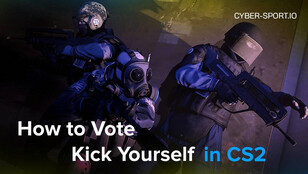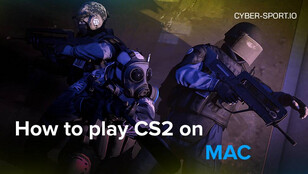The IGS (Intel Grand Slam) Tournaments
Intel hosts this kind of competition with plenty of events than anyone else hosted by the same promoter annually, and they are conducted in various places every season. The events are renowned and have sizable reward funds.
Minor competitions
The actual entrance to cybersport is through little competitions. All over the globe, minor activities are held, while the significant tournament of the season has the top clubs competing against one another. Minor competitions don't have much money up for grabs, but they count toward a Major.
Main tournament - Major
These competitions have scheduled times and a substantially larger payout than other competitions. Such competition can be entered directly or via similar minors. This award the most significant points in total, and the squad gains notoriety from competing in such competitions. A similar scenario intrigues gamers since, as we'll discuss considerably afterward, memory chests sometimes disappear from matches throughout essential championships.
Grid structure and types of matches
The competitive format, grid kinds, and set kinds are relatively comparable due to the diversity of events. Single elimination and double elimination are the most common types. In a single elimination format, clubs compete against one another to be the last ones standing. That eliminates any possibility of error. Nevertheless, double elimination is even more common. Therefore, this approach is rarely employed.
Double elimination - it has an upper and below net in this event style. The squad doesn't exit the competition after its first loss; instead, it moves to the bottom, where it could still go to the finals. If this occurs, though, the crew that entered across the upper net will hold the advantage of one map at the start.
Format of matches
The number of maps needed to win a competition determines how games are split up. There are three primary variations in sum: BO1, BO3, and BO5. The biggest "random" game type is BO1 when only one map is dealt. Clubs will perform the remaining maps after taking moves "banning" them. Regular competitions, qualifications, and BLAST Pro Series events follow this structure.
The much more common competitive structure is BO3. Squads take turns banning and selecting their chosen maps as they compete till two sides are victorious.
They are generally utilized throughout all matches of the playoffs and in all major events. This multiple-contest type known as BO5 is progressively becoming less popular. Both group step events and the knockout do not have it. Some competitions, like ESL, operate BO5 in the championship round. The most time-consuming games, for clarity purposes. Between three to eight hours is possible.
Cycle competitions
These are regularly organized competitions but do not form an element of any major or minor competitions. One of these is the BLAST. Hundreds of spectators watch live broadcasts of these competitions in stadiums. Although the format of these competitions changes, it is often a double elimination format featuring BO1 and BO3 encounters. The most outstanding competitions in perspective of excitement are those of this nature.
Regular tournaments
ECS, ESL, ESEA, and FPL are well-known of them. The top clubs convene for the seasonal finale to compete for the trophy, grading scores, and cash prize after playing online and having their achievements recorded in the rankings. Additionally, there are events Epicenter, DreamHack, WESG, GG.Bet, and Starladder. They also fit within the categories that have been provided. It's impressive to have won each of these competitions. But winning the most prestigious competition, the Major, is every organization's and player's greatest aspiration.
CS2 Gambling
CS2 Skin Trading
Rust Gambling
Promo Codes
Online Casinos
Crypto Casinos
CyberSport Feed








![Complete CS2 Console Commands Guide in [year] Complete CS2 Console Commands Guide in [year]](/imgs/news_8137/20250221/cache/1740129286_85c513dbe4d81658a4fe___308_174.jpg)